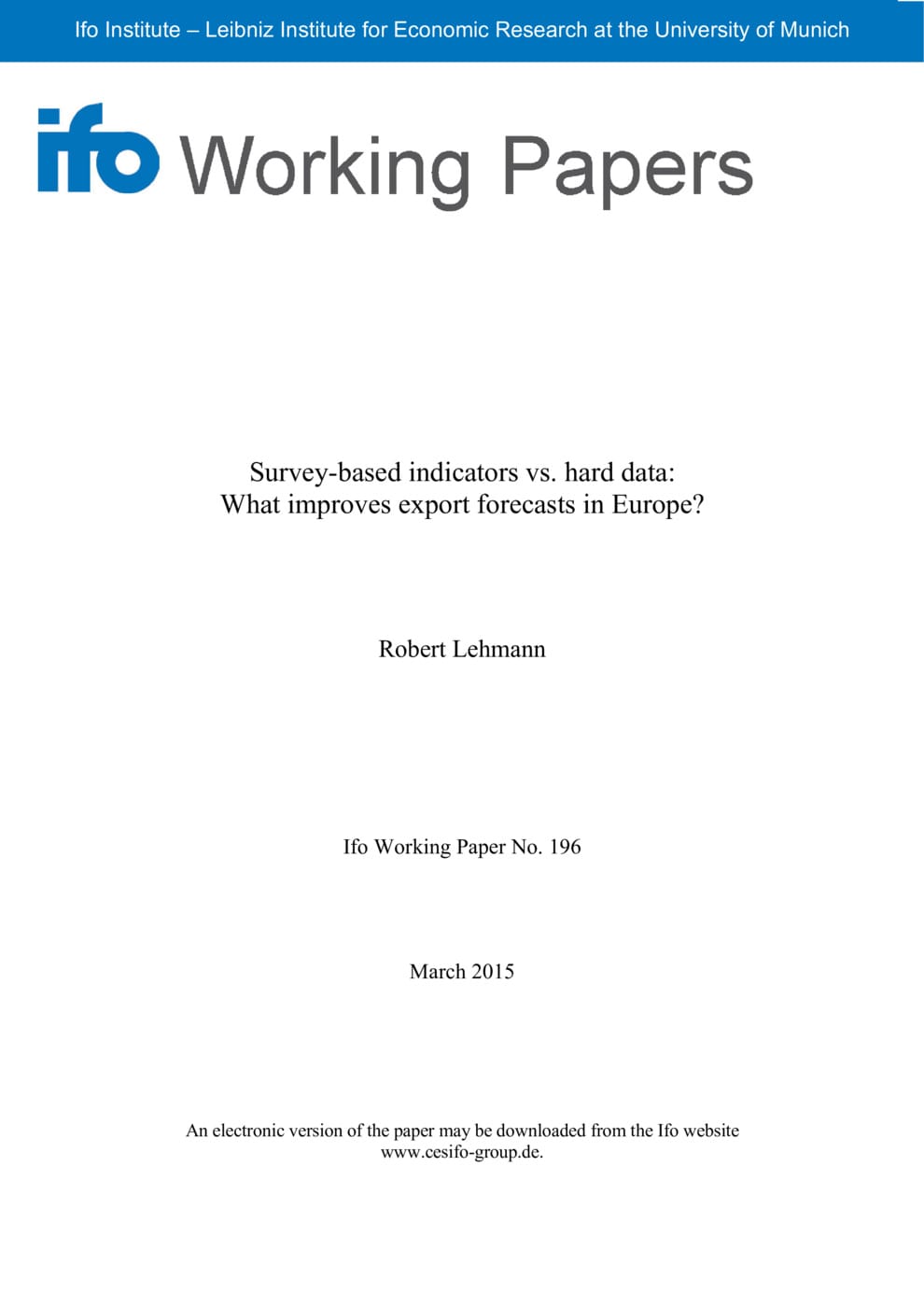Survey-based indicators vs. hard data: What improves export forecasts in Europe?
Ifo Institute, Munich, 2015
Ifo Working Paper No. 196

In this study, we evaluate whether survey-based indicators produce lower forecast errors for export growth than indicators obtained from hard data such as price and cost competitiveness measures. Our pseudo out-of-sample analyses and forecastencompassing tests reveal that survey-based indicators outperform the benchmark model as well as the indicators from hard data for most of the twenty European states focused on in our study and the aggregates EA-18 and EU-28. The most accurate forecasts are on average produced by the confidence indicator in the manufacturing sector, the economic sentiment indicator and the production expectations. However, large country differences in the forecast accuracy of survey-based indicators emerge. These differences are mainly explained by country-specific export compositions. A larger share in raw material or oil exports worsens the accuracy of soft indicators. The accuracy of soft indicators improves if countries have a larger share in exports of machinery goods. For hard indicators, we find only weak evidence for the export composition to explain differences in forecast accuracy.